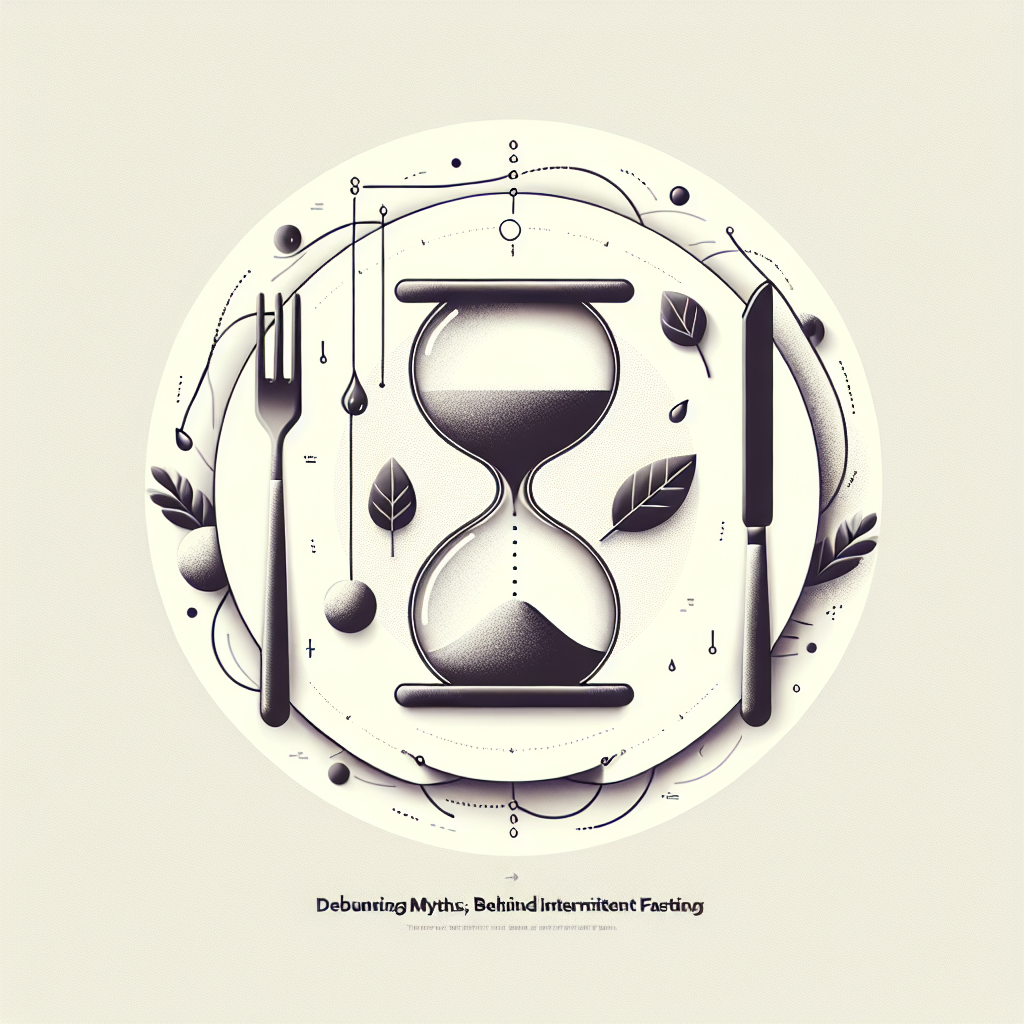### Debunking Myths: The Science Behind Intermittent Fasting
In recent years, intermittent fasting has surged in popularity, proving to be a unique approach for weight management and improving overall health. Intermittent fasting isn’t a diet in the conventional sense but rather an eating pattern that cycles between periods of fasting and eating. It applies a scientific principle where body fat, regarded as stored energy, is utilized during periods of non-eating. But like any health trend, misconceptions surround it. Let’s debunk the myths and delve into the scientific evidence of intermittent fasting.
**The Science Behind Intermittent Fasting**
The principle of intermittent fasting is rooted in our body’s ability to switch between glucose (derived from the foods we consume) and stored fat as its energy source. In the fasted state, the body doesn’t have a recently consumed meal to use as energy, so it’s more likely to pull from the fat stored in your body, burns it for energy, and leads to weight loss.
**Intermittent Fasting is Starving? Myth Debunked!**
The most common misconception is associating intermittent fasting with starvation. However, this is not accurate. Starvation is involuntary and harmful, while fasting is a deliberate abstention from food for spiritual, health, or other reasons. It’s a pause from eating and not a complete cessation. During an intermittent fast, your body undergoes a metabolic switch from burning glucose to fats, a process known as ketosis, thereby preserving your muscle mass.
**Intermittent Fasting is Unhealthy? Myth Busted!**
Although it’s critical to consult healthcare experts before starting, scientific studies suggest that, when done correctly, intermittent fasting can offer notable health benefits. These include weight loss, improved markers of health (such as reduced levels of insulin and blood sugar), increased resistance to stress, and increased longevity. Remember, the key is not merely fasting, but breaking the fast with nutritious food choices.
**Intermittent Fasting to Lose Muscle Mass? Myth Busted!**
Contrary to popular belief, intermittent fasting does not result in muscle loss. Instead, it can promote the production of human growth hormone (HGH), which is beneficial for fat loss and muscle gain. However, it’s vital to maintain regular resistance and weight training and consume adequate protein.
**Tips for Intermittent Fasting**
Adopting intermittent fasting doesn’t mean you should over-consume during non-fasting periods. Here are some tips:
1. Stay hydrated: Water, black coffee, green tea, and bone broth can help keep your feeling full.
2. Eat high-fiber foods: They can promote satiety.
3. Get plenty of sleep: Lack of sleep may drive hunger and cravings.
4. Maintain physical activity: It can be helpful in maintaining muscle mass and promoting fat loss.
**Final Thoughts**
Intermittent fasting presents a fascinating shift from what we traditionally thought of as healthy eating. While it is not for everyone, it may be beneficial for some people. With any dietary change, it’s always important to consult with a healthcare provider or dietitian to fully understand the potential implications and benefits for your individual health needs.
Remember, there’s no one-size-fits-all when it comes to diet. The ‘best diet’ is the one that nourishes you, aligns with your health goals, and is sustainable in the long haul.
Resources:
1. [Effects of 8-hour time-restricted feeding on body weight and metabolic disease risk factors](https://www.cambridge.org/core/journals/proceedings-of-the-nutrition-society/article/effects-of-8hour-timerestricted-feeding-on-body-weight-and-metabolic-disease-risk-factors-in-obese-adults-are-modulated-by-weight-loss/F2D170230FD47A2A2E66618BD8D0093D)
2. [Intermittent fasting: Surprising update](https://www.health.harvard.edu/blog/intermittent-fasting-surprising-update-2018062914156)


